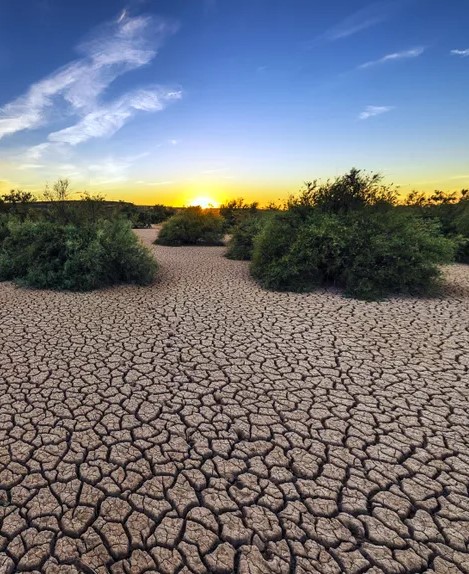The Horn of Africa, a region that extends into the Arabian Sea and lies along the southern side of the Gulf of Aden, stands at a critical juncture in the face of climate change.
This region, comprising countries like Ethiopia, Somalia, Djibouti, and Eritrea, is witnessing firsthand the harsh realities and challenges posed by a changing climate. Its strategic location and diverse landscapes, ranging from arid deserts to fertile highlands, only amplify the complexities of navigating a sustainable future amidst environmental uncertainties. This blog post delves into the multifaceted impacts of climate change on the Horn of Africa, highlighting the resilience and adaptive strategies of its people and calling for a unified global response to mitigate these challenges.
The Climate Crisis Unfolds
The Horn of Africa is experiencing climate change in profound and multifarious ways. Extended drought periods, interspersed with flash floods, have become more frequent and intense, devastating agriculture, which is the backbone of the region’s economy. Climate variability has led to unpredictable rainfall patterns, severely impacting food security and water availability. The repercussions are stark: increased hunger, displacement, and competition over dwindling resources.
Moreover, rising temperatures and shifting climate zones are threatening the biodiversity that the region is known for. Unique ecosystems and species are at risk, with implications far beyond the region’s borders, underscoring the global interconnectedness of biodiversity loss and climate change.
Navigating Through Adversity
Despite the daunting challenges, the Horn of Africa is not passive in the face of climate adversity. Communities across the region are leveraging indigenous knowledge and innovative strategies to adapt and survive. For instance, pastoralists are diversifying their livelihoods to become less dependent on climate-sensitive activities. In Ethiopia, community-based watershed management initiatives are revitalizing lands affected by erosion and deforestation, showcasing the potential of local action in driving sustainable environmental management.
Regional cooperation has also emerged as a key strategy in combating the impacts of climate change. The countries within the Horn of Africa are increasingly recognizing the need for collaborative efforts in resource management, disaster preparedness, and climate adaptation policies. Initiatives like the IGAD Climate Prediction and Applications Centre (ICPAC) are crucial in providing climate services and fostering resilience among member states.
A Call for Unified Action
The situation in the Horn of Africa is a stark reminder that climate change is not a distant threat but a present reality for many. It underscores the need for global cooperation in addressing climate change, with developed nations playing a crucial role in supporting vulnerable regions through technology transfer, financing, and capacity building. The international community’s response to the climate crisis in the Horn of Africa and similar regions will be a testament to our collective will to protect our planet and ensure a sustainable future for all.
The journey ahead is fraught with challenges, but it is also filled with opportunities for innovation, collaboration, and resilience. By learning from the adaptive strategies of the Horn of Africa’s communities and prioritizing climate action, we can navigate towards a more sustainable and equitable future, not just for the region, but for the world.


